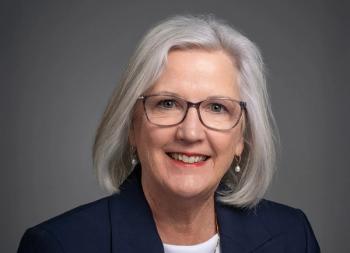
Washington state hospitals say ongoing losses are ‘unsustainable’
Most of the state’s hospitals are losing money. During an online forum, healthcare leaders warned that more services will be reduced or eliminated in the near future.
Eric Lewis says he’s accustomed to seeing some hospitals lose money.
But the current environment is much different, says Lewis, the chief financial officer of the Washington State Hospital Association. A new report from the association underscores the difficulties of Washington’s hospitals.
“When 85% of hospitals are losing money, that is very concerning,” Lewis says.
In the first six months of the year, Washington’s hospitals had a net operating income loss of more than $746 million. During the first half of 2022, hospitals had a net loss of $1.16 billion, so hospitals are seeing some modest progress. But Washington hospital officials say it isn’t nearly enough.
Cassie Sauer, CEO of the Washington State Hospital Association, says the losses can’t continue during an online forum Wednesday. “We are continuing to see major losses from basic hospital operations,” she says.
“Ongoing losses and basic hospital operations are unsustainable,” Sauer says. “Over time, they'll result in hospitals reducing high-cost or nonprofit health services simply so they can see that they keep the doors open. We've already seen this happen. We are seeing important services get cut.”
Washington’s hospitals are seeing improved revenue. The state’s hospitals saw a 9% increase in revenue, compared to the first six months of 2022. They are spending less in contract labor, although far higher than normal. Washington hospitals spent $716 million in contract labor in the first half of the year, down from $1 billion in the same period of 2022.
But some health systems have pulled back services, including OB-GYN services. Sauer also noted the closure of a psychiatric hospital near Seattle, Cascade Behavioral Health Hospital, which shut down at the end of July.
Health systems are weighing additional reductions in services.
“Ongoing large financial losses will result in less access to healthcare for patients,” Lewis says. “A current example is the loss of OB services in multiple communities in our state. Other OB programs are considering closure due to ongoing significant operating losses.” (Washington hospital leaders discuss the challenges in this video. The story continues below.)
‘Talking about basic services’
June Altaras, executive vice president and chief quality, safety & nursing officer of the MultiCare Health System, says the threat to Washington’s hospitals isn’t hypothetical. MultiCare operates 12 hospitals across Washington state.
“First and foremost, I will say that this issue of hospitals closing and decreasing services and communities is real,” Altaras says.
She pointed to MultiCare’s acquisition of Yakima Valley Memorial Hospital, a 226-bed facility, earlier this year, with primary and specialty care practices.
“If Yakima had not been able to join MultiCare, there's a very real possibility at one point in time that hospital may have closed,” she says.
The panel noted that some patients are experiencing long waits for procedures. Altaras noted that the problem isn’t limited to delays in getting access to specialty services.
“We're talking about basic services,” Altaras says. “You can't do surgery without anesthesiologists. To not have enough physicians to be able to do screening colonoscopies, or to take care of stroke patients in a timely fashion, these are not super specialty services. These are basic services in clinical you would expect to have in any community.”
‘A very challenging year’
Andrew Jones, CEO of Confluence Health, says the system is struggling. Confluence serves four counties in north-central Washington.
“At Confluence, we've had similar challenges to all other hospitals in Washington,” Jones says. “It’s been a very challenging year.”
He says he’s concerned about having access to capital to invest in new equipment and other business needs. Confluence also works with small rural hospitals to offer services to patients. Some other hospitals have cut back on services, and patients are coming to Confluence for care.
“We have seen instances where people are traveling further further away to see us than they usually would, often for specialty care, and often from outside our four-county area,” Jones says.
Jones outlined the dramatic rise in costs in contract labor, as many hospitals have turned to staffing agencies to fill nursing positions and other key roles. In 2019, Confluence spent $3.6 million on contract labor. The system spent $54 million in 2022.
“We're not that big an organization,” Jones says. ‘That's a tremendous expense, and that's what it took to keep all of our beds open all the time.”
‘We’ve done all we can’
Darryl Wolfe is CEO of Olympic Medical Center, a small hospital near Olympic National Park. The hospital has a capacity of 67 beds, and it has a daily patient census in the low 40s. He used a word that was repeated a number of times in the forum: “unsustainable.”
“This is an unsustainable equation for us,” he says.
“We find ourselves in a very difficult position,” Wolfe says. “Going forward, we've done all we can to control costs.”
Most of Olympic’s patient population relies on Medicare or Medicaid, which don’t reimburse at the same rate as commercial payers. He said the system gets 80 cents for every dollar in services provided for those patients.
Wolfe stressed that he wants the medical center to remain independent.
“We will keep doing what we're doing and we will continue to serve as we have been, as we pledged to do, but long term, I'm very concerned,” Wolfe says.
Washington hospitals have also been forced to house many patients that could be discharged, because of a lack of beds in post-acute care facilities. Some patients are being housed for days or weeks longer than necessary.
“Hospitals get paid very little or nothing to care for these patients once their acute care issue is resolved,” Sauer says. “And additionally, hospitals lose revenue from patients whose care is delayed because the beds are full.”
Altaras also said a lack of access to primary care in Washington state is having an impact on hospitals. “What I see is the very real backing up of these patients in our emergency department,” she says.
Sauer emphasized the difficulty of Washington hospital executives speaking candidly about the uncertain future for their facilities.
“Our hospital leaders saying these things is hard,” Sauer says. “They don't want to be in a public forum saying, ‘Things are really very, very challenging financially, we may be cutting services.’ It causes panic in their communities. And so for them to be willing to talk about this means it's quite serious.”































